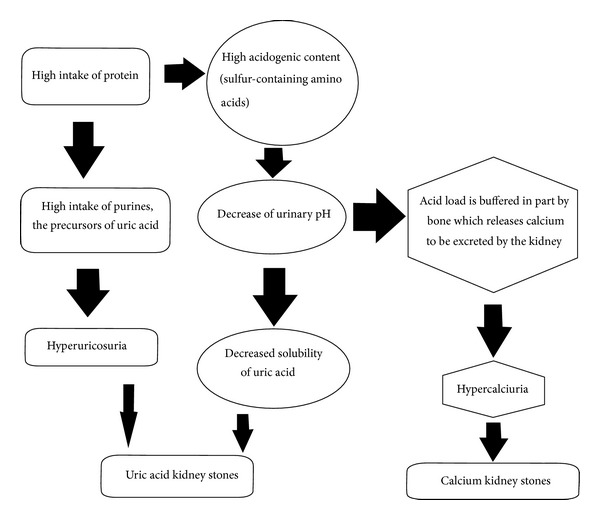Protein supplements are very popular among active people. Athletes and bodybuilders often take protein supplements to either increase or maintain muscles. Due to the increasing popularity of these products, manufacturers have given customers more diversity than ever before.
However, each protein source has its own advantages. Bodybuilding enthusiasts take protein supplements primarily to maintain muscle anabolism and enhance muscle recovery while maintaining overall health. Let’s find out about protein supplements’ pros and cons in this review.
Table of Contents
Protein Supplements Pros

Taking protein supplements helps one increase muscle mass and strength.
PRO: Protein supplements increase muscle mass and strength
This is probably the most popular benefit of protein supplementation. However, the effect of the protein supplement on your muscle mass and strength greatly depends on the protein source of your supplement (which, in turn, depends on your physical activity).
Endurance athletes and bodybuilders have different protein needs. For instance, endurance athletes burn a ton of branched-chain amino acids (BCAAs). With that in mind, experts say their recommended protein intake ranges from 1.0 g/kg of body weight to 1.6/kg of body weight .
As for bodybuilders and individuals who are into anaerobic or strength training, 1.5 grams of protein per kilogram of body weight to 2.0 grams of protein per kilogram of body weight ought to do the trick. Experts believe the standard 0.8 gram of protein per kilogram of body weight isn’t enough for intense athletes. Bodybuilders – who train intensely day in and day out – need more protein for muscle growth and shorter recovery time.
In addition, scientific data backs up the different effects of protein supplements. Athletes and bodybuilders need more protein to maintain or increase muscle mass and strength. Protein from dietary sources might not be enough for you, which is why protein supplementation might be necessary.
PRO: Protein supplements promote fat loss
When used correctly, protein supplements may aid in fat loss. In addition, you can take protein supplements with fat burners for a more rapid effect. The former helps ward off muscle loss and enhance fat loss you consume it in the precise dosages. However, you still have to take protein supplements in conjunction with proper diet and exercise. Otherwise, instead of fat loss, you might gain fat if use protein supplements incorrectly.
PRO: Protein supplements hasten muscle recovery
Protein supplements are able to improve muscle recovery because your body needs protein to repair itself. When you work out, muscle fiber trauma often happens. That is the time your body needs more protein and nutrients to recovery quickly. Athletes and bodybuilders are prone to muscle fiber trauma when they work out and train. Protein supplements help you heal faster so you can bounce back to your regular routine without post-workout muscle pain and soreness.
PRO: Protein supplements provide your daily protein requirements
You need enough protein to fuel your muscles. Your body uses protein as a source of energy. Depending on your diet, you may or may not be getting enough protein. If you are not getting enough protein from dietary sources, you probably need additional protein supplementation to help your muscles develop.
There are different protein supplements for your unique protein needs. That is why there are different protein sources available for you. There are plant-based (such as Optimum Nutrition Gold Standard 100% Plant) and animal-based protein sources (such as MuscleMeds CARNIVOR Beef Protein Isolate) which have different modes of action in your body. It is important that you obtain enough protein on a daily basis to prevent muscle catabolism.
PRO: Protein supplements work well with other dietary supplements
You can safely take protein supplements with other dietary supplements available on the market. If you want to further enhance your physical performance and muscle gains, it is ideal that you take testosterone boosters with protein supplements for best results.
Taking protein supplements with other dietary supplements have no known adverse side effects. However, other dietary supplements may have different ingredients which you might be allergic to. Check the label of the product before making a purchase to make sure that a supplement is suitable for you.
PRO: Protein supplements are safe and convenient
You can easily obtain protein supplements over the counter. Sellers also deliver their promises effectively as long as you choose a high-quality supplement. Athletes and bodybuilders may have different protein needs. That is why there are different protein supplements for every active person.
In addition, there are different protein supplements out there which come in different forms, making them even more convenient. You can either take protein bars (such as BSN PROTEIN CRISP BAR) or protein drinks. It all boils down to the form of protein supplement which is the most convenient for your workout.
PRO: Protein supplements benefit long-term health
If you are physically active and you want to live a long and healthy life, protein supplements may help you achieve your health goals. In addition, they may improve the quality of your long-term quality of life as long as you continue to live a healthy lifestyle. Here are some of the long-term benefits of protein supplementation:
- Increase antioxidant activity by elevating glutathione levels
- Modulate healthy blood pressure levels
- Improve cardiovascular health
- Strengthen bones
- Regulate cholesterol levels
- Boost your immune system
Protein Supplements Cons

Taking protein supplements may result in weight gain.
CON: Protein supplements may cause metabolic issues and weight gain
These metabolic issues may affect the liver, kidneys, and your bones. All of these three are vital body parts which perform crucial roles. That is why you should be mindful of your health from inside out. Metabolic issues with links to high protein intake may cause malfunction or imbalance in these areas.
Taking protein supplements may lead to weight gain due to unbalanced energy demand. If you take more protein than you actually use, it may turn into fat. Once the body turns it into fat, the body can store it – this process leads to weight gain. The clear takeaway: take enough protein that your body can utilize. Otherwise, protein supplements may help you gain more fat than muscle.
CON: Protein intake above the recommended dietary allowance for adults may lead to liver disorders and higher risk for carcinogenicity
If you take protein supplements while on a high-protein diet, it is likely that you get more protein than your body actually needs. When you take more protein than what your body needs, it no longer becomes beneficial for you. In fact, it puts your health at risk. Long-term high-protein intake which is way beyond your recommended daily allowance predisposes you to liver disorders and certain cancers.
CON: Too much protein intake in the form of protein supplements may lead to kidney issues
You need to drink plenty of water when taking protein supplements. Otherwise, you are at risk of kidney stones and other kidney problems. Many factors cause these kidney issues. However, when you are taking protein supplements while on a unusually high-protein diet, the risk of getting kidney stones increases.
In addition, you are also at risk for uric acid kidney stones. You can ward off renal problems related to high-protein intake by only taking enough protein that your body needs. Below is a mechanism on how a high-protein intake may result in different types of kidney stones:
CON: Protein supplementation may disrupt bone calcium balance in your body
Protein supplements may disrupt calcium balance in healthy adults. High amount of protein intake can either lead to hypercalciuria or osteoporosis. Both of these have links to calcium imbalance in your body. If you are taking protein supplements while on a high-protein diet, you are at risk for these conditions. You can counteract these adverse effects of protein on your bones through the consumption of alkali-rich foods or supplements.
CON: Protein supplements may increase risk factors related to coronary artery disease
Both protein supplementation and a high-protein diet increase some risk factors with ties to coronary artery disease. This happens because of the effects of high-protein intake on your blood flow and circulation. Too much protein intake affects lipid deposition and inflammatory & coagulation pathways. Experts only attribute this risk to long-term excessive protein intake which your body doesn’t fully utilize. You can steer clear of this side effect by consuming enough protein your body needs.
CON: In women, protein intake may increase women’s chance of infertility
There are different protein sources available on the market today. Apparently, there are protein sources which are less beneficial for women than others. Some of these protein sources could cause infertility in women. Even though protein supplements are generally safe for women, too much protein intake from animal sources may affect women’s ovulation.
Conclusion on Protein Supplements Pros and Cons
Protein supplements reap maximum benefits only when one takes them correctly. However, if you are already on a high-protein diet, you can still take protein supplements moderately. There are certain risks of excessive protein intake in the long term – the primary con of taking protein supplements. Experts attribute these risks to improper or excessive use of protein supplements.
There is always an ideal protein supplement for you. If you are a woman who is seeking an ideal protein supplement, our review on the Best Protein Powder for Women might help you decide. On the other hand, if you are a runner or endurance athlete, our review on the Best Protein Powder for Runners gives you the information you need in choosing the right supplement for you.
If you want the cream of the crop of protein supplements in the market, you should check out our review on the Best Protein Supplements 2018. Better yet, check out our How to Buy a Good Supplement Guide to get the lowdown on today’s bodybuilding supplements in greater detail.

Leave a Reply